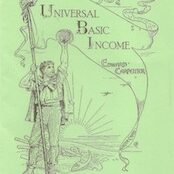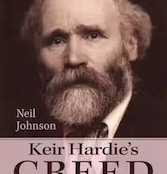The ILP has a long history of campaigning for democratic change within the Labour Party.
We were at the forefront of the early campaigns for internal reform in the late 1970s when the left agued for (and eventually won, in 1979) the right of constituency Labour Parties to deselect sitting MPs. This right, now trumpeted as a pillar of party accountability, was won in the teeth of opposition from many MPs and the right wing of the party.
 The ILP was also at the forefront of the campaign to broaden the electorate for leader and deputy leader beyond MPs to include party members and trade unions. A new system was eventually agreed in 1981 creating the ‘electoral college’ which still exists in modified form today, whereby the trade unions had 40% of the votes, MPs 30% and constituencies 30% (the proportions are now in line with the ILP’s view at the time, a third for each).
The ILP was also at the forefront of the campaign to broaden the electorate for leader and deputy leader beyond MPs to include party members and trade unions. A new system was eventually agreed in 1981 creating the ‘electoral college’ which still exists in modified form today, whereby the trade unions had 40% of the votes, MPs 30% and constituencies 30% (the proportions are now in line with the ILP’s view at the time, a third for each).
In this process, serious differences opened up between the ILP and much of the rest of the left. In arguments over the electoral college, the ILP saw that the left had to ‘compromise or be damned’ and stood up for a compromise position, not unlike that eventually agreed. Other groups on the left chose to be damned as undemocratic and stuck out hopelessly and erroneously for a much more trade union-dominated system.
More importantly, the ILP argued on the grounds of basic democratic principle, that the constituency element of the electoral college should be based on one member one vote (OMOV). Others on the left argued for the retention of a delegatory system which placed constituency votes in the hands of activists and officials, a system which we argued, correctly as it tuned out, invited a manipulative and undemocratic political practice. The ILP’s stance developed further and we came to a position which argued that to create a participatory democratic system, OMOV should include a requirement for members to attend a minimum number of party meetings.
We sustained the campaign for this system through the 1980s, although much of the force had gone out of the party democracy movement by the late 1980s. However, in 1988 OMOV was introduced for the constituency section of leader and deputy leader elections and, in 1993, under John Smith’s leadership, the trade union block vote was removed from elections to select parliamentary candidates and replaced with OMOV (without any attendance requirement). The ILP maintained its campaigns for more democratic change, arguing in the pamphlet Taking the Party to the Cleaners that annual conference was overly dominated by trade union block votes, often operating in cahoots with party leadership.
With the advent of Tony Blair’s leadership, the process of democratic reform was put into reverse and the new Labour leadership set its face against the party membership. Despite his previous championing of OMOV, Blair oversaw cumbersome and leadership-dominated processes for selection of mayoral, MEP and devolved assembly candidates with disastrous results.
Blair also sidelined conference from any significant role and created the National Policy Forum as a mechanism for taking policy debate out of public view. When the NPF and the Party into Power initiatives were introduced, the ILP argued that the processes needed to be made simpler, more direct, with more room for minority views to be heard, and with conference having a key role in debating and deciding on options – all ideas that have returned to the forefront of thinking about reform to the party’s policy process.
—
See also: ‘The great stumble forward’: a comment on Labour’s trade union and membership reforms.


